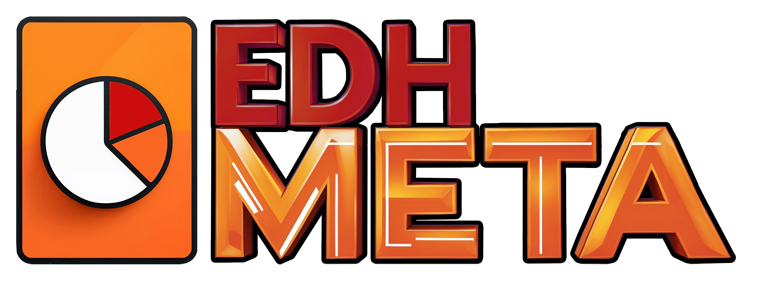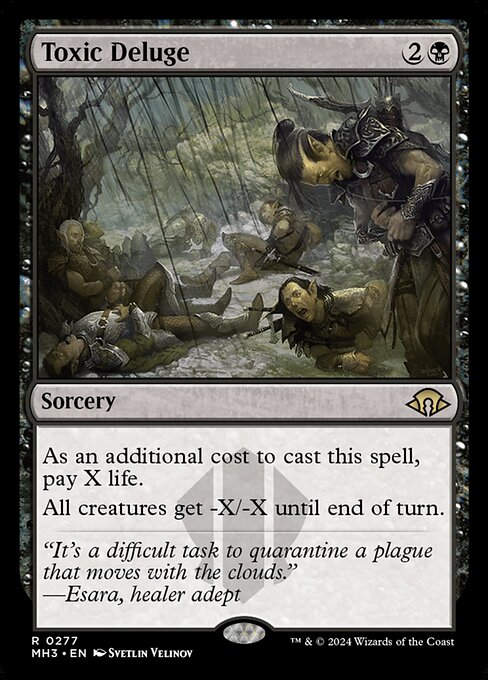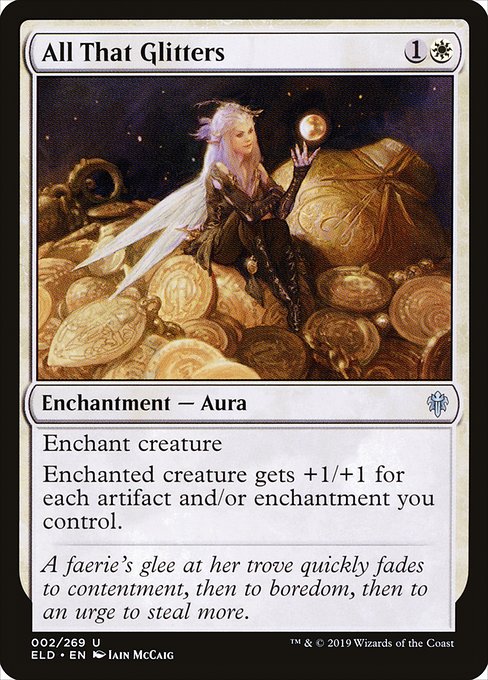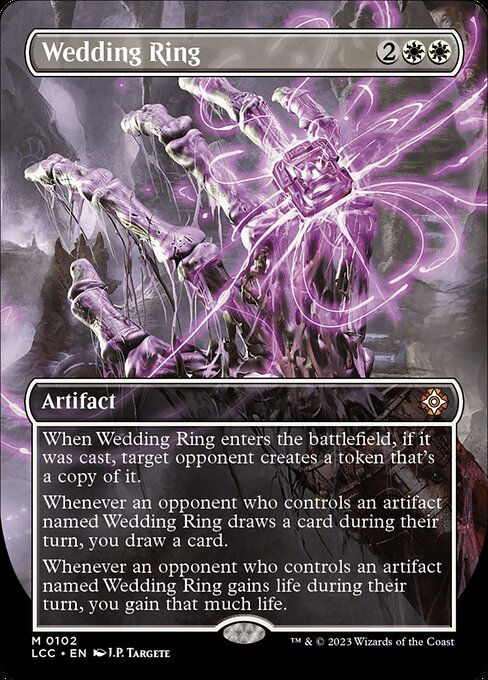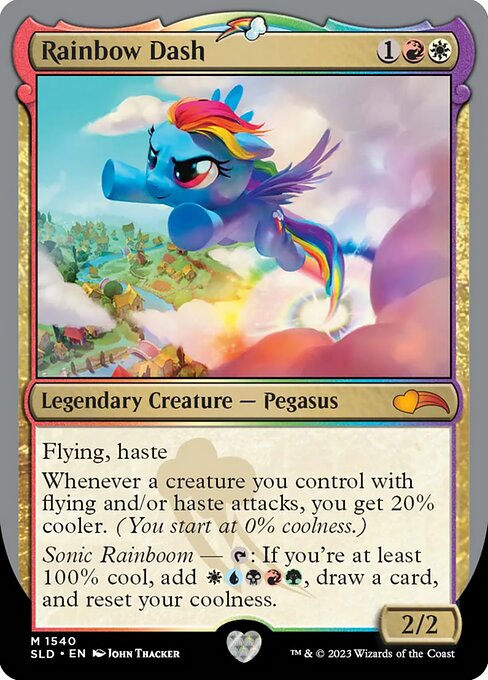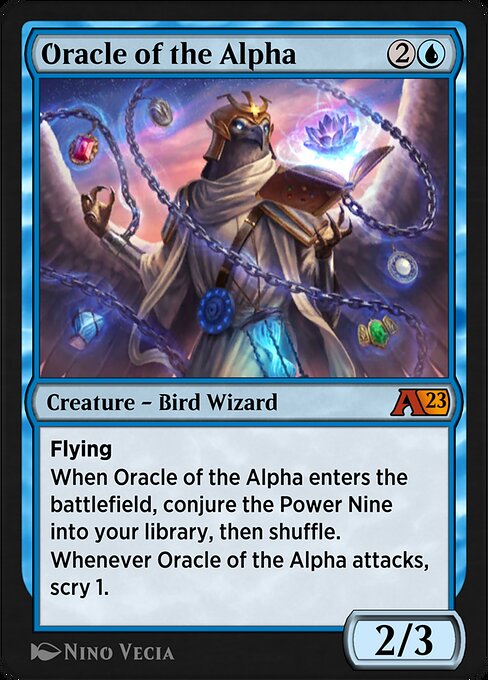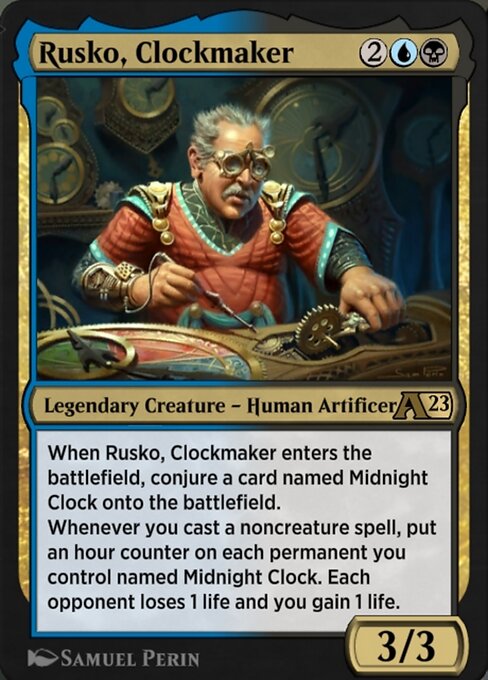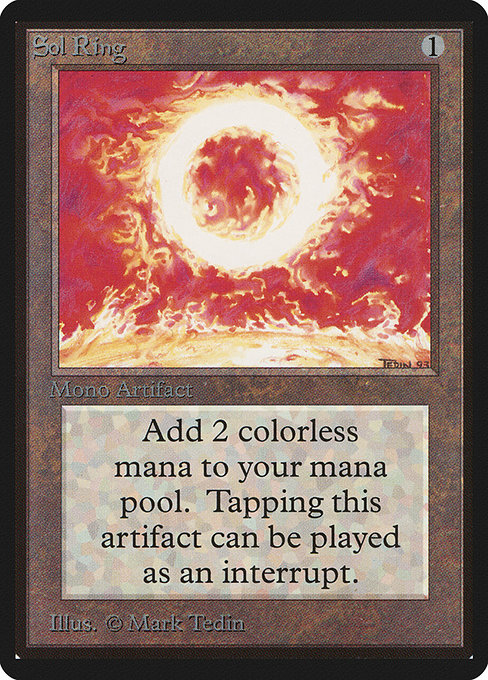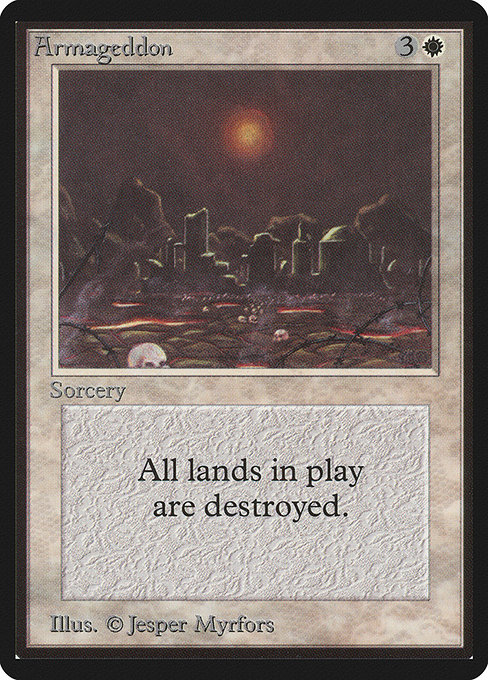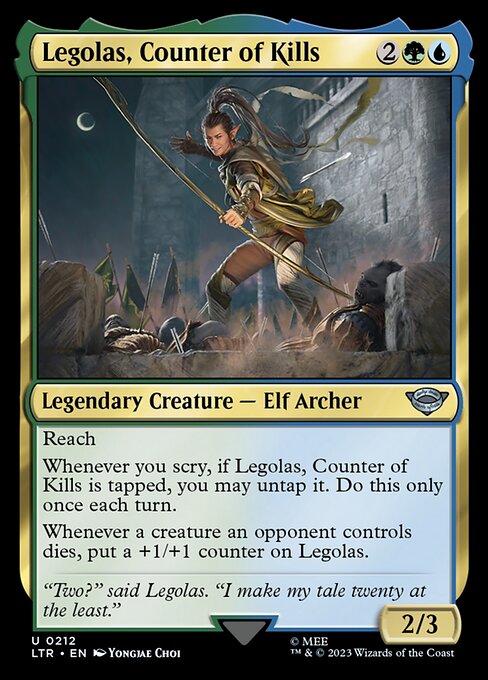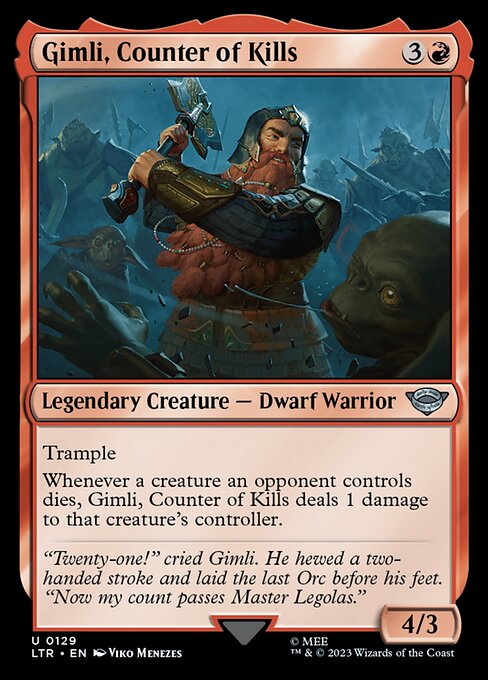Politics and Rule Zero both lead Commander into being a very unique format, and amplify its position as a multiplayer format that has a casual lean to it by making social politics a big factor in the core gameplay. You won’t run into these in other formats like Standard or Modern, and they are exclusive to Commander. These are elements in every Commander game, so you want to make sure you understand everything about them.

What Are Politics?
Politics in Commander refers to the gameplay aspect of interacting with players outside of game mechanics. For example, you might have Toxic Deluge in your hand, and an opponent might have a ton of Goblin tokens. You can persuade your opponents to keep you alive so you can wipe the board on your turn. Alternatively, you may make this public to the Goblin player, and use it as an incentive to make them attack someone else, or else you’ll use the board wipe.
On the other side of the equation, you might find yourself having to use politics to ensure your side of the battlefield stays safe. You may try casting your commander, and find yourself saying “If this resolves, I promise I won’t attack anyone,” as a way to stop someone from countering it.
You’ll make deals with your opponents as a part of politics. You might have a Chaos Warp in your hand, and you declare that to try and make a deal with someone. This can take the form of you saying you won’t target something an opponent controls if they promise not to remove something on your battlefield, too. The back and forth is what makes politics so dynamic in Commander, and it comes in many forms.
When To Use Politics
While politics are a big part of Commander, you don’t want to overuse them. If you try to use politics for every game action, people are going to target you.
In regard to politics, you want to use them when you need them the most. If you know you need a spell to resolve, that’s when you want to get political and start making deals.
Politics comes up a lot when you can target anyone. If you have an unblockable creature such as Blighted Agent, you can use politics to make deals to not attack a player if they help you later on. If Blighted Agent is loaded up with Auras with All That Glitters attached, you have a threat of a one-turn kill through infect. This makes your opponents more incentivized to agree with deals you propose.
The more leverage you have, the better deals you can make. If you’re not a threat, your opponents won’t have any reason to side with you if you try to politic through a situation.
You may find yourself on the wrong side of politics and have people target you. This is where you have to turn into a great communicator to try and get them on your side or dissuade your opponents from making deals that hurt you. You can “one-up” the deal being made to be more enticing if they team up with you. You might not succeed, but it’s worth a shot, otherwise you’ll have multiple players going after you.
Group Hug Politics
Group Hug is a genre of Commander decks that, instead of harming your opponents, you’re actively helping them. Common Group Hug commanders include Ms. Bumbleflower (which had a whole precon), Kynaios and Tiro of Meletis, and Gluntch, the Bestower to name a few.
When playing a Group Hug deck, you’ll need to constantly be making deals and partaking in game politics. With Group Hug, you’ll be giving your opponents useful effects and resources while making deals with them.
For example, you can use Flumph to let you and an opponent draw a card by having it take damage. You can use this to build alliances and help an opponent draw cards so they keep you in the game. Another example is Wedding Ring, which binds you to another player to incentivize both of you working together to get the full value out of it.
A big part of Group Hug, and politics in Commander in general, is knowing who to support and when. You want to make alliances with the strongest opponents, but it’s a delicate line, as you don’t want to put them too far ahead, as you still need to win the game. You also don’t want to be too aggressive; otherwise, you may find yourself without help when you need it the most.
Betrayal and When To Break Alliances
With Commander politics, there will be times you won’t be able to make due on your promises. You may find yourself drawing a card that drastically changes what you were planning to do. When this happens, you’ll have to evaluate any deals you may have made.
You don’t want to break deals when you don’t have to. However, in competitive cEDH games, you may find yourself having to, especially in a tournament setting. When tournament placing is on the line, you’ll have to back out of alliances if you’ve drawn into your wincon.
If you find yourself needing to betray those you made an alliance(s) with, it’s important to note you won’t be given the benefit of the doubt for any future deals. So, only pull out of any deals you may have made if you’re ready to not need to use politics anymore to keep yourself safe or get ahead.
Rule Zero
Rule Zero is the ultimate rule that can be in every Commander game. Commander is, at the end of the day, a casual format, and as such, you can bend the rules for anyone’s enjoyment. Rule Zero is the “rule” that you can make up any rules you want.
You can use Rule Zero in a plethora of ways. It’s basically the Commander way of saying “have fun and do whatever you want.” Of course, if you are utilizing Rule Zero, you’ll have to make sure everyone you’re playing with is fine with what you’re trying to do.
The utilization of Rule Zero is most common in pods that you play with frequently. Since you’re used to everyone, you know what everyone is fine with, and since they know you well, they will likely be fine with whatever you’re trying to do. When it comes to playing with strangers, such as at an LGS, you may have more problems with players being okay with your Rule Zero requests, as everyone is different. No one is required to agree to Rule Zero, hence why it’s not an official rule.
Types Of Rule Zero
Since Rule Zero is such a broad “rule,” there are many different ways you can utilize it. Some are minor changes, while others are major and have much more effect on what you’re doing.
Playing With Proxies
Proxies are cards that aren’t real, and basically stand-ins for the real thing. Technically, if you’re playing at an event, you can’t use proxies at all, even casually. However, with Rule Zero, you can inform everyone that you have a proxy in your deck for a specific card(s). This is especially common with cEDH and its pricey staples such as Grim Monolith, Chains of Mephistopheles, and Candelabra of Tawnos. Ultimately, it’s up to your pod to say if they’re okay with you using proxies or not, although certain events are proxy-friendly (especially cEDH events).
Playing With Illegal Cards
Sometimes, Magic releases cards that can’t be played in Commander. This can be because it was in an Un-set, which (most) cards aren’t legal to use in any format, or because it was never designed to be legal in the first place (which cards usually have silver borders to represent). Normally, you can’t use a card like Rainbow Dash (a card created for an Extra Life fundraiser) or Discord, Lord of Disharmony as your commander, but with Rule Zero, it becomes possible.
You can also play with cards that were digital-exclusive that were printed in Mystery Booster 2, which included various Alchemy cards (only found on Magic: Arena) such as Oracle of the Alpha. You could even use Rusko, Clockmaker to show paper players how much of a powerhouse it is with how much it dominated Brawl on Arena.
Play With Digital Cards
Magic Arena has plenty of very cool designs that are locked behind the Alchemy format. While some can’t be played in paper, other ones can easily be translated for interesting decks and card choices. This does require you to print them yourself, as outside of a select few cards, none of them are actually available in paper.
A card like Xho Cai, Flickering Talon would make for an awesome Blink commander (and does on Brawl), but you can’t play it in paper without Rule Zero. Hamza, Might of the Yathan is a cool face-down commander locked in Arena. With Rule Zero, you can use Tsagan, Raider Warlord as a first strike commander, something not actually available in paper.
Free Mulligans
In Commander, you get one free mulligan. Afterward, for each additional mulligan, you will have to put one card on the bottom of your library for every time you mulligan. However, with 99 card decks, there can be a ton of variance that comes by nature.
Some groups allow you to mulligan until you have a playable hand. At the end of the day, Commander is a casual format, so you don’t want people forced to play a hand that doesn’t do anything. As such, this is one of the most common forms of Rule Zero.
It is important to note that free mulligans do require an unspoken agreement not to lie. Theoretically, someone could abuse this rule and mulligan until they have the best hand possible. However, without any stakes in a casual game, there’s no reason to do this.
Personal Banlist
This is something that you can only do in pods that you consistently play with. Personal banlists are exactly what it sounds like, bans that ban cards not on the official banlist.
Fast mana like Sol Ring can make or break an early-game, so some playgroups ban it. Other playgroups may do a flat ban on mass land destruction with cards like Armageddon since it’s not particularly fun to play against. Players all have personal preferences, so that’s why the personal banlist exists as a Rule Zero option.
Partner Commanders
Partner is a mechanic that lets you play two commanders if both of them have the partner ability. This ability has proved to be problematic, so partner commanders aren’t too common anymore. However, there are some cards that would make for fun partner commanders, be it mechanically or for lore reasons.
For example, Legolas, Counter of Kills and Gimli, Counter of Kills are two cards that are begging to be partners. They’re friends in lore, and in Magic, they have effects that compliment each other. However, since they don’t share a color identity, you can never play them both in a Commander deck. That is, without Rule Zero, which lets you achieve your dreams of both of them leading your Commander deck.
In Conclusion
Thanks to Commander’s unique format and rules, both politics and Rule Zero are things you will run into over the course of your Commander career. They are always around and will never leave the format.
Politics is a major part of Commander, and even has entire archetypes built around using politics as its core game plan. By learning how to navigate all the political situations that will arise, you’ll be able to work your way to victory more often. Making deals and alliances is a core part of the Commander format, and what makes it so fun. Group Hug decks have this trait, and even other deck archetypes such as Voltron have politics come up when trying to make allies or make your opponents target someone else.
Rule Zero is the most useful tool in the entire Commander format. Commander is meant to be fun, and Rule Zero helps to enable that fun by letting you let loose with the rules and alter the game for maximum enjoyment. Rule Zero is not something everyone needs to follow, and it isn’t something everyone even enjoys having around. However, you can use it in any way you like, and as often as you like. That’s the great thing about Rule Zero: it technically doesn’t exist, so you can ignore it if you hate it, or utilize it if you want to spice up your Commander nights.
